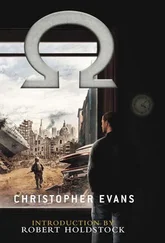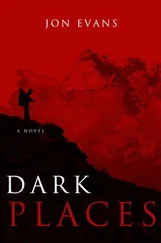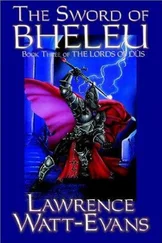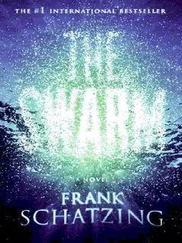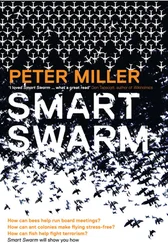“Now we find them.”
“Right. How?”
“We outsource the first stage,” she said. “Finding their real names and their data shadows. Online handles, profiles, email addresses, everything. Grassfire has people at Yahoo, Microsoft, Google, Facebook. LiveJournal, that’s very popular in Russia. Major backbone providers, mobile phone networks, databases everywhere. We should know in an hour whether Dmitri or Dana have logged on to any such accounts recently. If so, we can isolate the individual computers they used. If even one of those computers was in London, they are ours.”
“Huh.” I was something like awed.
“Are you frightened that we can do this? Trace them from an old picture to their current location?”
I nodded.
“Good,” she said. “You should be. It frightens me too. That’s why we must act while we can. This is only the beginning of the panopticon dystopia.”
“But it’s OK in your hands,” I said. “Because you guys are the good kind of omniscient eyes and ears operating completely outside the law with no checks or balances. Right?”
Jesse grinned. “Yes, exactly. We’re benevolent dictators. How could anyone possible think otherwise?”
“How indeed. That’s so comforting.”
“Ain’t it? But the mushroom cloud of ubiquitous surveillance is not about to go back into its uranium casing. All we can do is ensure that the transparency is two-way, so that you can spy on me spying on you.”
I shrugged. “Who has the time these days?”
At that Anya laughed aloud. It hadn’t seemed that funny to me, but I guessed it tickled the Russian sense of humour.
“Come,” she said, standing, “let’s have lunch in the attic.”
She used the intercom to issue commands in Russian, then led us down a hallway and up marble stairs, to a steel door with rubber seals. The sudden light and colour and fragrance beyond made me gasp. The entire top floor of Kharlamov’s mansion was a floral greenhouse, full of whole fields of flowers arrayed in swirling patterns.
Pathways of raked gravel led between the vividly coloured beds and ziggurats. There were delicate orchids, each in its own glass cage, and rosebushes clipped into the shapes of little girls. A green cylinder seven feet tall stood in a place of honour, droopingly erect and strangely skeletal, like a carnivorous alien from another world.
“The corpse flower,” Anya said. “It blooms only once a year.”
I said inadequately, “This is amazing.”
The air was warm and damp. Except for a web of thin steel girders the roof and walls were solid glass. She led us along a gravel trail to a wrought-iron bench across from a little plot of churned earth. A piece of paper adorned with a diagram of a complicated spiral pattern, footnoted in big flowery handwriting, sat on that barren dirt, weighed down by a sinuous hunk of green malachite. Plans for its reconstruction, I supposed.
Something about that piece of paper tickled something in the back of my brain. I wondered if I’d seen that spiral pattern before. One of the fractals that so fascinated Sophie, perhaps.
“I try to come here at least once a day,” Anya said. “To be surrounded by beauty.”
“We’re wasting time,” Jesse muttered.
“Yes, of course. Jesse never likes it here,” she said to me. “It isn’t useful.”
I grimaced awkwardly.
“It’s the Russian temperament,” Jesse explained to me. “She needs to spend at least an hour a day brooding uselessly about things, or her life is incomplete.”
“Yes, exactly,” she said acidly. “Unlike you careless Canadians.”
I tried to change the subject. “Remember the good old cold-war days when you Russians were the bad guys?”
She raised an eyebrow. “We were taught you were the bad guys.”
“Don’t be ridiculous. The Americans, sure, capitalist pig running dogs, but we Canadians have socialized medicine and open-door immigration. Actually we always kind of liked you Russkies. You were the enemy, but you were a cool enemy, and you played hockey. Hard to imagine Osama bin Laden on skates. Or Jorge Ortega.”
“And now your NHL has bought all our best players.”
“I’m pretty sure most of them come of their own free will.”
“For the almighty American dollar.”
I looked at her. “No offense, but I wouldn’t expect you of all people to be complaining about the abuses of the rich.”
She looked around at her private park. “Why? Because of all this? Because my uncle is a billionare?”
“Well,” I said, “yeah.”
“He wasn’t always. My family, we were well educated, before the revolution we were aristocrats, but James, I grew up poor. A big Moscow apartment tower, three of us sleeping in one room. Cockroaches. Sometimes no hot water, even in winter. When the USSR collapsed, that was a terrible time. So many homeless. Children, even, like wolves. Criminals everywhere. Gunshots at night. My other uncle was murdered. We ate meat only once a week. The schools were terrible, no computers, nothing. Uncle Viktor, nobody thought he would amount to anything, he was an actor who collected scrap metal. But maybe because all Moscow was scrap, that began to matter.”
“He made a billion dollars out of scrap metal?” I asked incredulously.
“Among other things. They were strange times, Moscow in the nineties.”
“And the Russian government tried to assassinate him a few years ago, right? That whole radiation-poisoning thing?” That bizarre story had gotten major coverage around the world. The Kremlin had never admitted responsibility, but couldn’t deny that a former KGB agent had come to London, poisoned Kharlamov’s senior advisor with polonium, returned to Russia, and subsequently been shielded from extradition.
“Yes. If he hadn’t had the flu that day… You see, he supports democracy movements in the motherland. He always calls it that.” An indulgent, amused smile flickered on her lips. “That is our ultimate goal at Grassfire. Freedom for all motherlands. But we must be careful with our money. No matter how pure your intentions, money is always a weapon of oppression. I see that clearer than ever now. Money, power, they do strange things to people.” She gave Jesse a meaningful look.
“Like what?” I asked.
“When you have them, you become different, no matter how hard you fight to remain the same. Power corrupts, this we all know, but do you know the mechanism? It severs your human connections. It sets you adrift. People, even friends, even family, they come to you not for your company, but for your power. I see it myself. Since I was thirteen, since he became rich, the whole world sees me as a tool, not a person. An access point. An interface to my uncle’s good graces. All beautiful women experience something like that, being a symbol, a goal, a thing. But for me it was much more stark. No one was ever interested in me as a person. Only in what I could bring to them.”
“Sophie used to say the same kind of thing sometimes, about being a genius,” I mused, then realized I had just spoken of her in the past tense for the first time.
Anya looked dubious. “Maybe it’s similar.”
Again I wondered how and why Sophie could have betrayed me.
The door to the greenhouse opened, and two servants appeared, carrying a food. They did not speak a word as they arrayed our lunch on a folding table. I had never had caviar before. I pretended to like it.
Back in the corner studio, Jesse and Anya checked email. She scanned a missive written in Cyrillic, and grunted with satisfaction. “Bad news and good. All Dmitri’s access was via Tor, untraceable. But Dana logged on to Gmail from an Internet cafe in Earl’s Court three weeks ago. A fatal error, I think.”
Читать дальше


